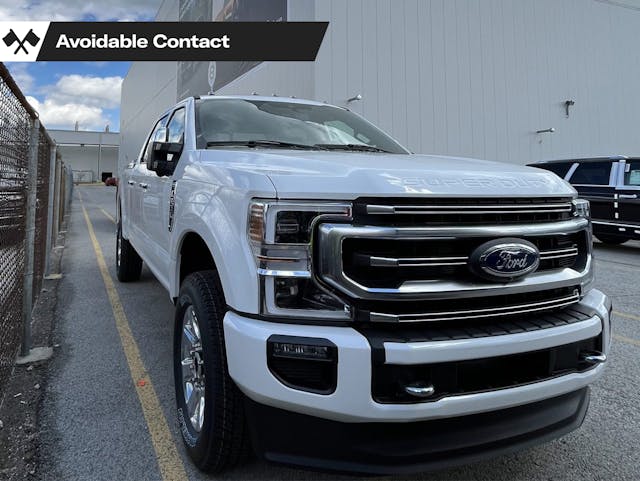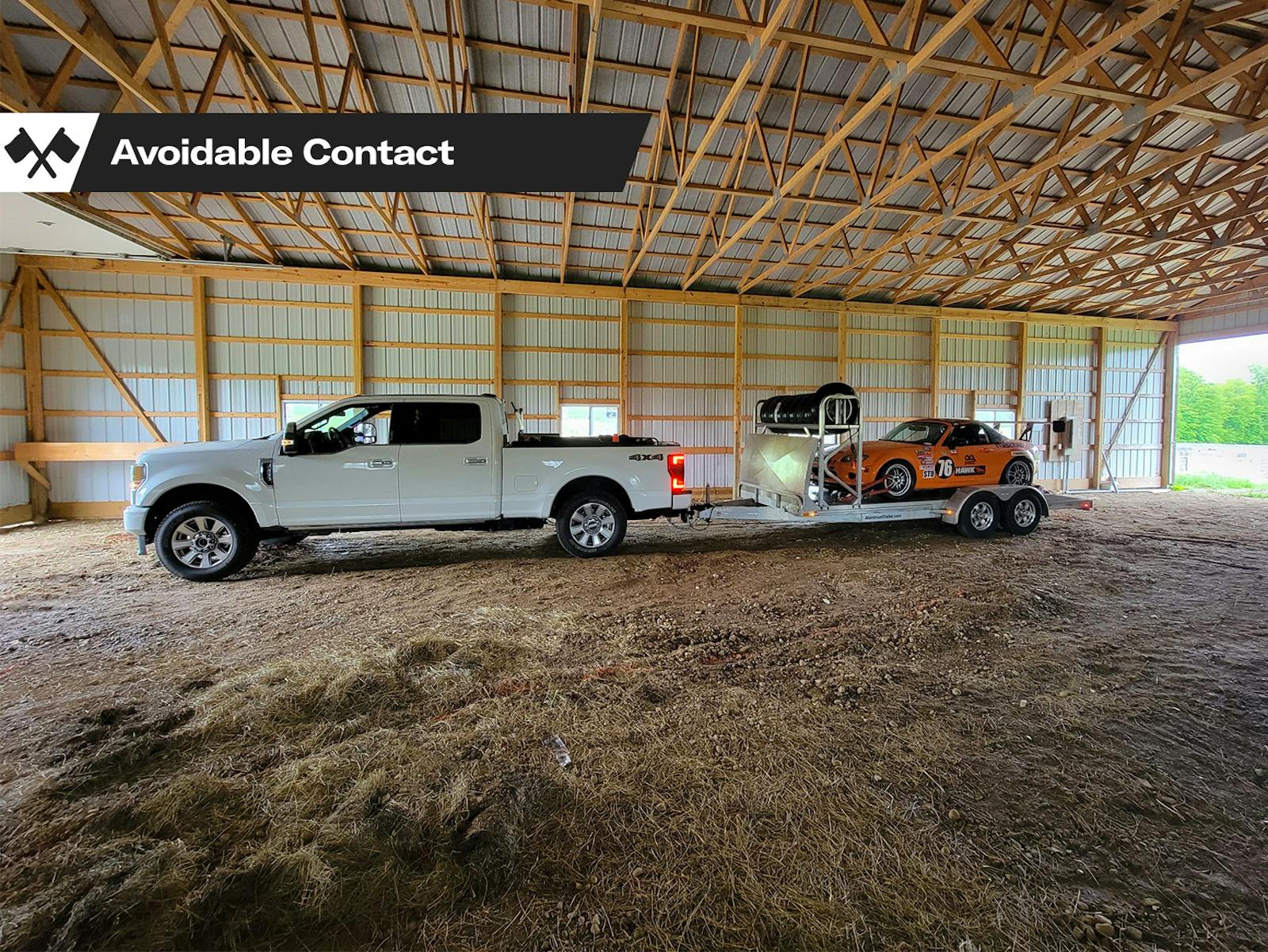Avoidable Contact #146: The real deal on dealerships in 2022

I feel sorry for anyone who never made a living, however uneasy that living might have been, by selling cars. The automobile dealership, particularly the independently owned auto dealership, was for many years one of the last authentically American places on Earth. Long after most of our transactions in life were reduced into degrading little submissions before a faceless corporation, long after the incomprehensible but fantastically powerful “EULA” began dictating the terms of everything from our electric bills to our dating lives, the dealership was still a place where human beings lied, stole, failed … loved, trusted, succeeded. No two transactions the same, no two customers alike, no two salespeople identical. It was the polar opposite of an Apple Store, and that’s what made it great.
Naturally, this greatness is best appreciated at a safe distance, the way one might enjoy a sightseeing trip of various Egyptian pyramids without giving too much thought to the horrors of their construction. Many of the worst days in my life were spent working at dealerships, learning hard lessons and leaving desperately needed cash on the table over and over again. Twenty-five years later, it’s easy to remember the good parts and gloss over the bad. You remember the big wins, not the small losses. The stories, not the boredom.
Dealerships are such reliable sources of great automotive stories that I’m surprised there hasn’t been more fiction written with the “store” as a backdrop. John Updike did a bit of it with the third and fourth books in his Rabbit series. A rather unusual fellow named Remar Sutton wrote Don’t Get Taken Every Time, a pretty decent book of car-buying advice sprinkled liberally with semi-fictional anecdotes of dealers cheating customers—and the reverse. Sutton revised the book five times over the course of a few decades before calling it quits, because when it comes to the car business, change is truly the only constant.
That’s doubly true in this era of “chip shortages” and “supply chain constraints,” of course. We’re in a sort of perfect(ly miserable) storm right now in the dealership world. Inflation is higher and faster than it’s been since the Carter years; not since “Morning in America” have we experienced the now-frequent phenomenon of automakers doing quarterly re-pricing. Interest rates are soaring, both for customers and for the dealership itself. (Remember that second part; we’ll return to it shortly.) While the total production numbers for new cars aren’t as bad as you might think from looking at all those empty showrooms, they’re still pretty bad.
In the past 45 days I’ve sold two cars, bought two new trucks, and acquired one new racecar. I’ve asked a lot of questions and learned quite a bit in the process. At the same time, I’ve watched a few different friends and acquaintances struggle through the new-vehicle process, sometimes in rather public fashion. It seems like a good time to talk about what’s changed lately in the dealership game, while also being aware of what hasn’t changed.
Let’s start by understanding that each and every transaction at a new-car store is dictated in large part by two kinds of laws. The first kind is the very considerable body of dealership-centric regulations in your state. Most of these regulations are written by state dealer association lobbyists, and I mean that literally; the dealer groups provide the text of the law and the states rubber-stamp it. If you’ve ever wondered why you don’t see multiple Ford dealerships at a “chicken corner,” a not-so-quick read of state law will set you straight on this and many other issues. There’s also a lot of consumer-protection legislation that gets shoved through the states on a periodic basis by Ralph Nader wannabes and politicians looking to score off the abysmal public image of dealerships. Most of that legislation is junk that does more harm than good. Ever wondered why you can’t buy a car over the phone in most states? Because of consumer protection laws that strictly define a “sale” as you, the buyer, physically driving a car off the lot. That way you can’t be scammed into buying a car over the phone. Do you want to legitimately and knowledgably buy a car over the phone? Too bad.
The second kind of law that governs new-car sales is what Robert Ringer called “the law of the jungle.” Since most people talk about lawsuits about one thousand times as often as they actually file lawsuits, and since most state attorneys general don’t have infinite time to pursue the whiny little complaints of people who decide a year after the fact that they paid $100 too much for a spray-in bedliner, the law of the jungle is really the only law that matters when you buy a new car. And in the jungle, concepts like “fairness” and “ethics” don’t apply—on either side of the desk.
At pretty much all times between 1948 and 2020, with very few exceptions, the situation at most stores was something like this: The dealership is sitting on a lot of inventory that they’d like to sell sooner rather than later, so they are going to be very flexible on price. At the same time, they can get a lot more money for a used car than you can get for that same car, because they have finance offices and television ads, so in exchange for letting you grind them on the new-car side they are going to grind you on the used-car side. This is the world described by Remar Sutton in his book, and in that world the smartest thing to do is always:
* Sell your car privately for top dollar;
* Get your financing from a credit union or trusted bank;
* Pay invoice minus some holdback for your new car;
* Don’t sign anything in the finance office but the registration application and the paper that says you decline everything else.
It’s no more complicated than that. Well, it wasn’t any more complicated than that. Things are different now.
Prior to 2020, dealers made money by turning inventory in a hurry. There was always an unlimited supply of new cars from the manufacturer, unless you were a Honda shop in 1982, so the smart thing to do was sell today’s inventory for whatever the market would bear immediately then replenishing that inventory with cars that would also be sold in a hurry. No longer. Today’s dealer has no idea when his next hauler full of vehicles is arriving. So he is going to want to maximize his profit on every car he has. That could mean “ADP” markups—Additional Dealer Profit. It could mean a requirement that you finance with the dealership, or that you buy various after-sale items like extended warranties.
“If new cars are so valuable, why not auction them off, or put ridiculous markups on them, knowing that someone will eventually pay?” The answer to that: floorplan. Dealerships don’t own their inventory. Banks do, on a line of credit known as a “floorplan.” Until 2020, most stores had MASSIVE floorplans that rotated at very low interest rates. That’s changed. Now the floorplans are smaller, the interest rates are higher, and the incidental fees paid by the dealers to the banks are higher. Selling a car today, rather than holding on to it for a few weeks, can make a real difference in the bottom line. So the dealer still has incentive to sell in a hurry.
Chances are you also have something the dealer wants: your trade-in. Used cars are selling for about 35 percent more this year than last year, and supplies are down. Having a desirable trade can help you beat out another customer for that brand-new car in the showroom. He’s willing to pay sticker? Well, so are you—plus you have a trade that can make another five grand for the dealership on the used-car lot. Until 2020, the rule was, “Don’t mention your trade until you’ve made a deal on the new car.” That rule is out the window now. It’s time to dangle some bait in front of the sharks.
A lot of dealerships are telling potential customers to order a new vehicle and wait. If you have the time and ability to do that, it’s not a bad idea. But don’t be naive enough to think that the ordered vehicle is “your” car. Remember those consumer protection laws? They make it illegal for you to be on the hook for an ordered vehicle. Most states won’t even let a dealer take a nonrefundable deposit. And the “purchase agreement” that you might sign to firm up your hold on that vehicle? Wipe your hind end with it, because it has zero validity until you drive the car off the lot. Trust me on this. I’ve seen people sign purchase orders, sign loan agreements, and hand over down payment checks, only to change their minds in the bathroom and walk away from the deal. Guess what the penalty is for doing that? It’s zero.
This is where the law of the State and the law of the jungle intersect. The dealer can use your name and your signed purchase agreement to “jump the line” in allocation ahead of cars that are ordered for dealer stock. But they have zero obligation to deliver that car to you, and they have zero obligation to do it at the previously agreed-upon price. They can cancel the transaction just like you can, because consumer protection laws have done their darndest to ensure that no sale is final until the car in question has driven off the lot. Until 2020, these laws were a lot more helpful to buyers than they were to dealers. Guess what? The shoe is on the other foot now.
Therefore, if you’ve ordered a car, you won’t want to dilly-dally too long before picking it up. The fellow who sold me my new F-250 is an old friend, and my former dealership boss—but the morning my truck came off the hauler, I was ready to sign the papers in person. Because if it had sat there for a few days, someone would have made him a serious offer. How serious? Well, CarMax is asking $92,000 for 2021 model year F-250s with original sticker prices in the $70,000 range and 20,000 miles on the clock—and they’re getting it. How much is a zero-mile 2022 Super Duty Platinum worth? Did I mention that Ford isn’t taking any more orders for the 2022 model year? The law of the jungle says you sell it for a hundred grand right now to the next person who walked in the door. Then you write off the minimal value of being on my Christmas-card list in years to come.
Is this behavior ethical? It’s exactly as ethical as me paying $19,000 under sticker for a new 2006 VW Phaeton because it was a showroom paperweight in a mismanged store adjacent to a Navy base. Precisely as ethical as demanding invoice-minus-holdback-and-rebates on the Dodge Ram pickup that was sitting in a dusty lot filled with a hundred identical Rams in 2019. Identical in ethics to showing up at a dealer on the last day of the month because the sales manager might go home to his family without a job the next day unless he manages to hit an arbitrary target set by a second-generation dealership owner with a cocaine habit, a teenaged mistress, and a penchant for wrecking JetSkis. Save your ethics discussions for your children and your church group. This is business. Always has been.
If you need a new car or truck right now, this is what I’d recommend doing: Figure out what you want, and what you’d be willing to take. Type it up and print it out along with your contact information. Visit every dealer you can, in person, and ask for a few minutes with a sales manager. Ask how they’re currently handling new-car inventory. Are they selling at sticker? Above? Are there conditions? If you can accept those conditions, tell the manager you’re a buyer for anything matching your description on the same day it arrives. Doing that can sometimes keep a car off the bank floorplan, which is money in the dealer’s pocket. Offer to finance with the dealership, which makes them extra money. Get the manager’s contact information and make sure he has yours. Then call him (or her) once a week to see if anything’s arrived. If it has, go there and buy it, right then and now.
Most dealership sales managers are lazy people. They’d rather sell you the car than call a dozen people looking for a little extra markup, particularly if you have a nice trade and/or you’ll finance with the dealer. Make it easy for them, and you’ll get the vehicle you want. Or, as they say in the rental game, similar.
It also wouldn’t hurt to place an order with every dealer that will accept the order, using the names of family members to fool the computer at Ford or wherever. The worst thing that could happen is that all the vehicles come in at the same time, you pick the best deal, and the other dealers have an extra vehicle to sell for a nice markup. Nobody’s getting hurt there.
My sources tell me that the constraint on new-vehicle availability has at least another six months to run. Longer in some cases. If you can afford to wait, you’ll save some money. If you can’t, then you can’t. Simple as that. Don’t take any of it personally. When I was selling Ford Tauruses in 1995 to bottom-feeder bargain hunters who wanted to pay $13,500 for a sedan with a dealer invoice of $15,100, I told myself that there’s nothing wrong with trying to get the best deal possible. In 1995, the advantage was with the customer. Now it’s on the other side of the desk.
I hope this advice helps. If it does, I have a favor to ask: Don’t take out your agitation on your sales person. In recognition of the fact that you don’t exactly have to be a master persuader to sell a car in 2022, most dealerships have cut commissions to the bare bones. I’m hearing an average payout of $250–$400 for a new-car sale, regardless of how much “additional dealer profit” is in the deal. Your dealer might be getting rich. Your dealership group might be getting rich. But the man or woman sitting across from you has never been in a worse spot. As sorry I feel for those of you who never sold a car for a living, I feel even worse for the people who are doing it for a living right now. This too shall pass, of course. But not yet.

